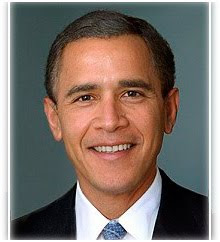Harvard primatologist Richard Wrangham on the key role cooking played in human evolution.
In "Scientific American.
Evolving Bigger Brains through Cooking: A Q&A with Richard Wrangham
Our intelligence has enabled us to conquer the world. The secret for the big brains, says biological anthropologist Richard Wrangham, is cooking, which made digestion easier and liberated more calories.
A New York Times conversation:
A Conversation With Richard Wrangham
From Studying Chimps, a Theory on Cooking
By CLAUDIA DREIFUS
Published: April 20, 2009
Richard Wrangham, a primatologist and anthropologist, has spent four decades observing wild chimpanzees in Africa to see what their behavior might tell us about prehistoric humans. Dr. Wrangham, 60, was born in Britain and since 1989 has been at Harvard, where he is a professor of biological anthropology. His book, “Catching Fire: How Cooking Made Us Human,” will be published in late May. He was interviewed over a vegetarian lunch at last winter’s American Association for the Advancement of Science meeting in Chicago and again later by telephone. An edited version of the two conversations follows.
{Click the above hyperlink for the interview.}

Friday, November 27, 2009
Thursday, November 26, 2009
Ditch your running shoe!: Lehrer talks with McDougall
WNYC -New York public radio, 11/26/09:
Heel to Toe
Running is more popular than ever. Christopher McDougall, contributing editor for Men’s Health, and author of Born to Run: A Hidden Tribe, Superathletes, and the Greatest Race the World Has Never Seen, talks about the science of “extreme” running and the rise of running culture.
Heel to Toe
Running is more popular than ever. Christopher McDougall, contributing editor for Men’s Health, and author of Born to Run: A Hidden Tribe, Superathletes, and the Greatest Race the World Has Never Seen, talks about the science of “extreme” running and the rise of running culture.
Labels:
Brian Lehrer,
jogging,
jogging shoes,
running mate,
running shoes,
WNYC
Thursday, November 19, 2009
EWG study: top most attractive cellphones and 10 worst phones in radiation emissions
Bravo to the Environmental Working Group for posting its ranking of the best and the worst of cell phones (or mobile phones), measured by the factor of lowest or highest radiation emissions.
AND
Here is the link to the full Environmental Working Group (EWG) study on DOZENS of phones.
AND ANOTHER AUTHOR ASKED, Was Senator Ted Kennedy's brain cancer death the result of frequent cell phone use?
Follow this link at examiner.com.

Yet, the EWG ratings rate the SAR levels. As one writer notes, this is insufficient and possibly misleading.
AND
Here is the link to the full Environmental Working Group (EWG) study on DOZENS of phones.
AND ANOTHER AUTHOR ASKED, Was Senator Ted Kennedy's brain cancer death the result of frequent cell phone use?
Follow this link at examiner.com.

Yet, the EWG ratings rate the SAR levels. As one writer notes, this is insufficient and possibly misleading.
Why is the SAR value not an accurate measure of safety?
The SAR value is only comparing the heating effect of different phones and does not give an indication that a cell phone is ‘safe.’
The power, or heating effect, of the phone is only one of many possible factors impacting cell phone ‘safety.’ Exposures to the radiation from the cell phone at non-heating levels have been linked to many serious biological effects, and the SAR value is not capturing anything about these harmful non-thermal exposures.
SAR values are reported to the FCC by the manufacturer and have been known to vary from the reported number by a factor of two across models of the same phone.
The SAR value varies with the source of exposure and the person using the phone. For example, if you are in a rural area or in an elevator or a car, where the cell phone uses more power, your brain will get a greater exposure from the higher power required in these instances.
Holding the phone in a slightly different way can actually render the worst SAR value phone better than the best SAR value phone.
SAR values have been created based on simulations of exposure in a plexiglass head filled with fluid, not a human head, and many scientists consider them to be inaccurate and irrelevant at determining actual biological effects. As Rees points out, and I wholeheartedly agree:
“Physical distance of the phone from your brain, and less usage of the cell phone overall, more so than simply choosing a phone with a lower SAR value, is probably a far better insurance policy.”
Subscribe to:
Posts (Atom)















